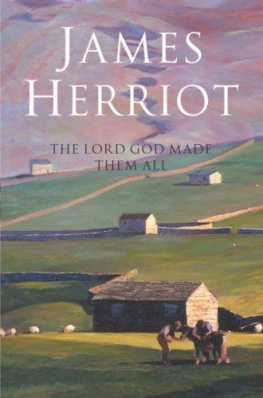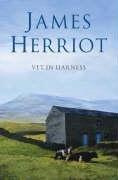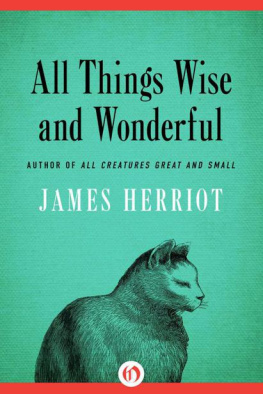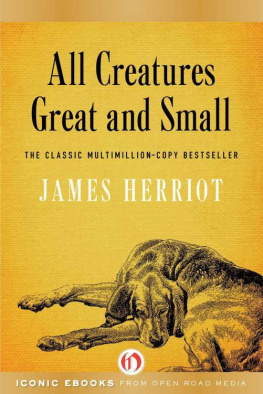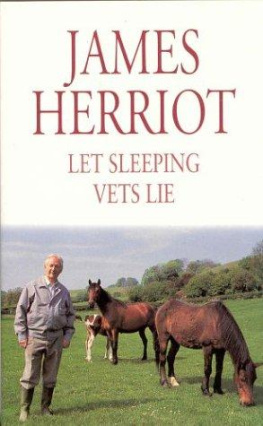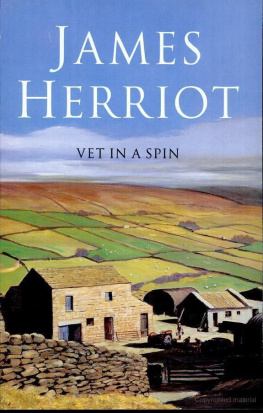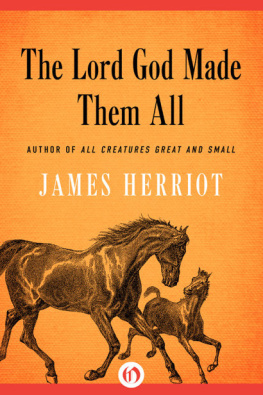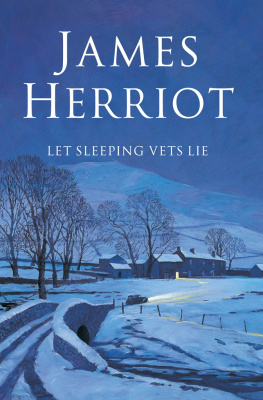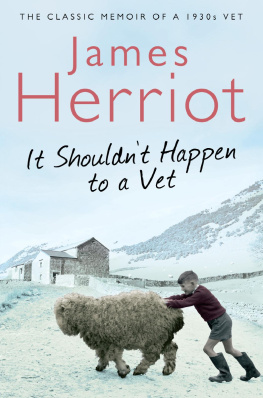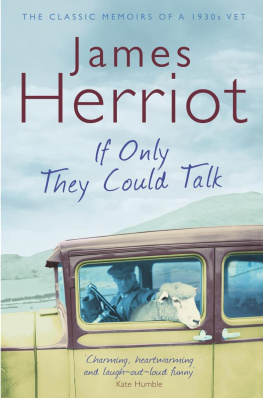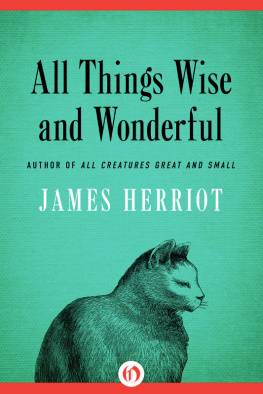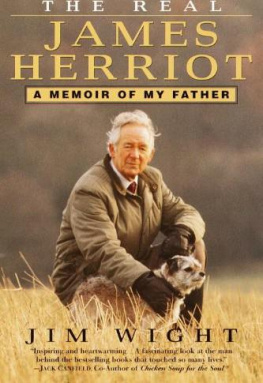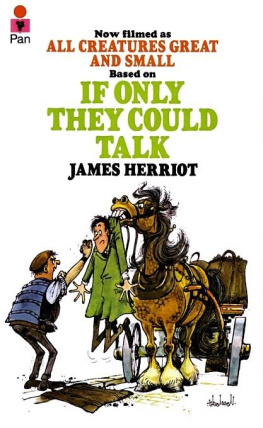@page { margin-bottom: 5.000000pt; margin-top: 5.000000pt; }
Chapter Twenty-Two
"Ilet my heart fall into careless hands." Little Rosie's voice piped in my ear as I guided my car over a stretch of rutted road. I had singing now to cheer the hours of driving.
I was on my way to dress a wound on a cow's back and it was nice to hear the singing. But it was beginning to dawn on me that something better still was happening. I was starting all over again with another child. When Jimmy went to school I missed his company in the car, but I did not realise that the whole thing was going to begin anew with Rosie.
The intense pleasure of showing them the farm animals and seeing their growing wonder at the things of the countryside, the childish chatter that never palled, the fun and the laughter that lightened my daysit all happened twice to me.
The singing had originated in the purchase of a radiogram. Music has always meant a lot to me and I owned a record player that gave me a lot of pleasure. Still, I felt I wanted something better, some means of reproducing more faithfully the sounds of my favourite orchestras, singers, instrumentalists.
Hi-fi outfits hadn't been heard of at that time, nor stereo, nor wrap-around sound, nor any of the other things that have revolutionised the world of listening. The best the music lover could do was to get a good radiogram.
After much agonising and reading of pamphlets and listening to advice from many quarters, I narrowed my list down to three models and made my choice by having them brought round to Skeldale House and playing the opening of the "Beethoven Violin Concerto" on one after the other, again and again. I must have driven the two men from the electric shop nearly mad, but at the end there was no doubt left in my mind.
It had to be the Murphy, a handsome piece of furniture with a louvred front and graceful legs, and it bellowed out the full volume of the Philharmonia Orchestra without a trace of muzziness. I was enchanted with it, but there was one snag; it cost over ninety pounds, and that was an awful lot of money in 1930.
"Helen," I said when we had installed it in the sitting room, "we've got to look after this thing. The kids can put records on my old player, but we must keep them away from the Murphy."
Foolish words. The very next day as I came in the front door, the passage was echoing with Yippee ay ooooh, yippee ay aaaay, ghost riders in the skyyy! It was Bing Crosby's back-up choir, belting out the other side of the "Careless Hands" record, and the Murphy was giving it full value.
I peeped round the sitting-room door. "Ghost Riders" had come to an end, and with her chubby little hands Rosie removed the record, placed it in its cover and marched, pigtails swinging, to the record cabinet. She selected another disc and was halfway across the floor when I waylaid her.
"Which one is that?" I asked.
' "The Little Gingerbread Man,' " she replied.
I looked at the label. It was, too, and how did she know, because I had a whole array of these children's records, and many of them looked exactly the same. The same colour, the same grouping of words, and Rosie, at the age of three, could not read.
She fitted the disc expertly on the turntable and set it going. I listened to "The Gingerbread Man" right through and watched as she picked out another record.
I looked over her shoulder. "What is it this time?"
"Tubby the Tuba."
And indeed it was. I had an hour to spare, and Rosie gave me a recital. We went through "Uncle Mac's Nursery Rhymes."
"The Happy Prince."
"Peter and the Wolf" and many of the immortal Bing, to whom I was and am devoted. I was intrigued to find that her favourite Crosby record was not "Please," or "How Deep Is the Ocean" or his other classics, but "Careless Hands." This one had something special for her.
At the end of the session, I decided that it was fruitless to try to keep Rosie and the Murphy apart. Whenever she was not out with me, she played with the radiogram. It was her toy.
It all turned out for the best, too, because she did my precious acquisition no harm, and when she came with me on my rounds, she sang the things she had played so often and which were word-perfect in her mind. And I really loved that singing. "Careless Hands" scon became my favourite, too.
There were three gates on the road to this farm, and we came bumping up to the first one now. The singing stopped abruptly. This was one of my daughter's big moments. When I drew up she jumped from the car, strutted proudly to the gate and opened it. She took this duty very seriously, and her small face was grave as I drove through. When she returned to take her place by my dog, Sam, on the passenger seat, I patted her knee.
"Thank you, sweetheart," I said. "You're such a big help to me all the time."
She didn't say anything but blushed and seemed to swell with importance. She knew I meant what I said, because opening gates is a chore.
We negotiated the other two gates in similar manner and drove into the farmyard. The farmer, Mr. Binns, had shut the cow up in a ramshackle pen with a passage that stretched from a dead end to the outside.
Looking into the pen, I saw with some apprehension that the animal was a Gallowayblack and shaggy with a fringe of hair hanging over bad-tempered eyes. She lowered her head and switched her tail as she watched me.
"Couldn't you have got her tied up, Mr. Binns?" I asked.
The farmer shook his head. "Nay, I'm short o' room, and this 'un spends most of 'er time on the moors."
I could believe it. There was nothing domesticated about this animal. I looked down at my daughter. Usually I lifted her into hayracks or onto the tops of walls while I worked, but I didn't want her anywhere near the Galloway.
"It's no place for you in there, Rosie," I said. "Go and stand at the end of the passage, well out of the way."
We went into the pen, and the cow danced about and did her best to run up the wall. I was pleasantly surprised when the farmer managed to drop a halter over her head. He backed into a corner and held tightly to the shank.
I looked at him doubtfully. "Can you hold her?"
"I think so," Mr. Binns replied, a little breathlessly. "You'll find't'place at the end of her back, there."
It was a most unusual thinga big discharging abscess near the root of the tail. And that tail was whipping perpetually from side to sidea sure sign of ill nature in a bovine.
Gently I passed my fingers over the swelling, and, like a natural reflex, the hind foot lashed out, catching me a glancing blow on the thigh. I had expected this, and I got on with my exploration.
"How long has she had this?"
The farmer dug his heels in and leaned back on the rope. "Oh, 'bout two months. It keeps bustin' and fillin' up over and over again. Every time I thought it'd be the last, but it looks like it's never goin' to get right. What's't'cause of it?"
"I don't know, Mr. Binns. She must have had a wound there at some time, and it's become infected. And, of course, being on the back, drainage is poor. There's a lot of dead tissue which I'd have to clear away before the thing heals."
I leaned from the pen. "Rosie, will you bring me my scissors, the cotton wool and that bottle of peroxide?"
The farmer watched wonderingly as the tiny figure trotted to the car and came back with the three things. "By gaw,'t'little lass knows 'er way around."
"Oh, yes," I said, smiling. "I'm not saying she knows where everything is in the car, but she's an expert on the things I use regularly."
Rosie handed me my requirements as I reached over the door. Then she retreated to her place at the end of the passage.
I began my work on the abscess. Since the tissue was necrotic, the cow couldn't feel anything as I snipped and swabbed, but that didn't stop the hind leg from pistoning out every few seconds. Some animals cannot tolerate any kind of interference, and this was one of them.
Next page
